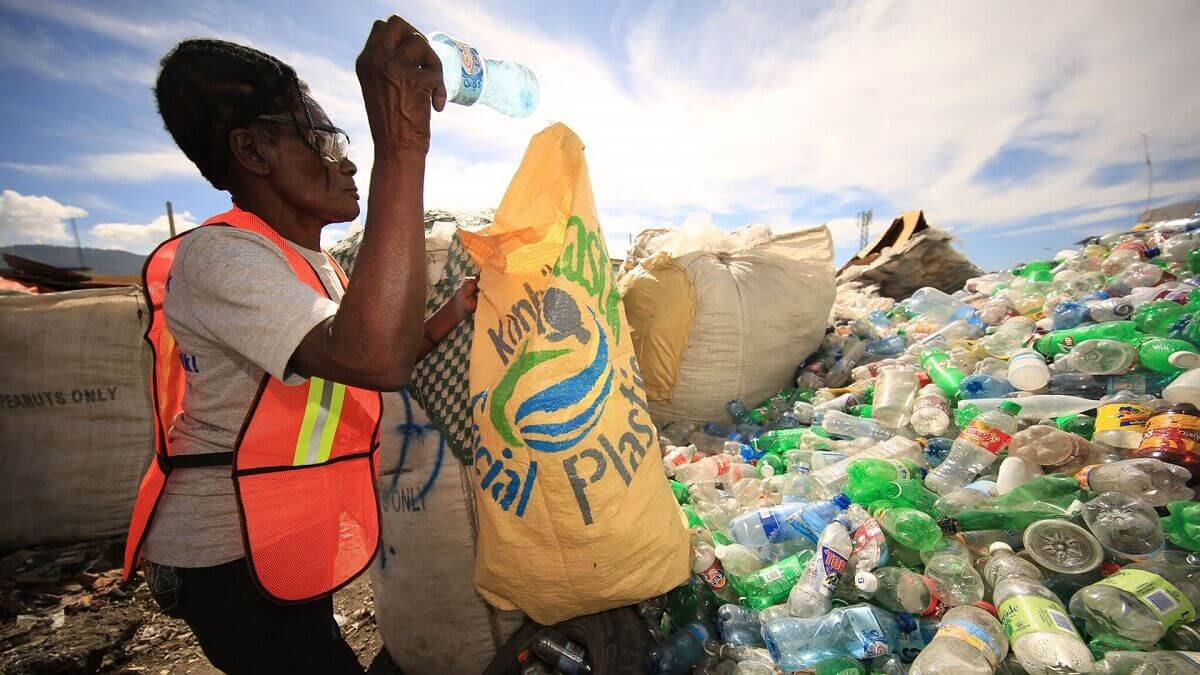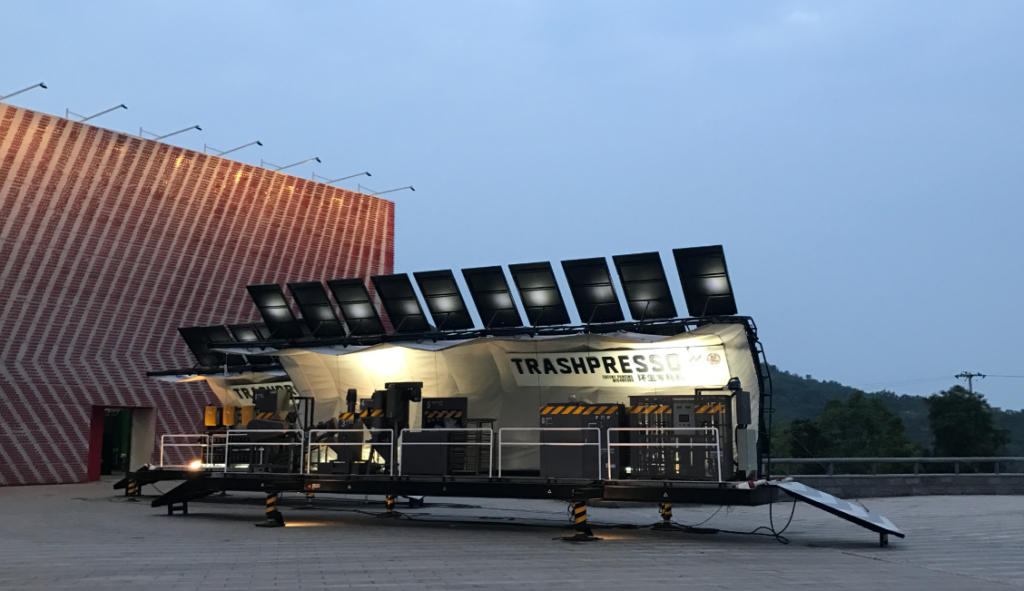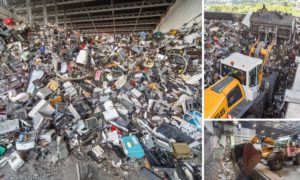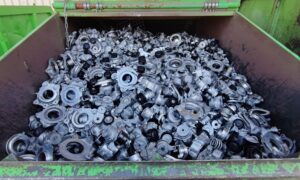In the face of growing environmental challenges, the concept of circular economy has become a key pillar of sustainable development. Around the world, companies, startups, and communities are rethinking the way we produce, consume, and manage waste. These initiatives go beyond simply reducing our ecological footprint. They are transforming economic and social models by putting innovation, inclusion, and environmental responsibility at the core of their missions.
From turning old tires into artisan shoes in Ethiopia, to giving value to disposable plastic in developing countries, to fighting food waste and regenerating polluted urban land, these projects represent bold and creative approaches to sustainability. This blog highlights six powerful examples from across the globe, demonstrating how innovative ideas can drive meaningful changes for both people and the planet.
SoleRebels, Ethiopia

In the heart of Ethiopia’s capital, Addis Ababa, one woman’s vision turned old car tires into a global symbol of sustainable fashion. Founded in 2004 by Bethlehem Tilahun Alemu, SoleRebels is more than just a shoe company — it’s a social enterprise that combines traditional Ethiopian craftsmanship with modern eco-conscious design.
The idea was simple but powerful: use recycled materials, especially discarded tires, to create durable soles for handmade shoes. These soles are then paired with locally sourced organic cotton, artisan-woven fabrics, and natural fibers to create comfortable and stylish footwear. The result is a collection of shoes and sandals that are not only environmentally friendly but also deeply rooted in Ethiopian culture.
But SoleRebels is not just about reducing waste. It’s about creating opportunity. The company provides fair-wage jobs to local artisans, many of whom were previously unemployed or underemployed. Workers are trained on-site, gaining valuable skills in sewing, weaving, and shoe-making, all in safe and supportive working conditions.
SoleRebels has since expanded its reach globally, with products sold in over 30 countries, proving that eco-conscious design and cultural heritage can go hand in hand.
The Plastic Bank, Canada

A pioneering zero-waste initiative with global impact was born in Canada, tackling one of the world’s biggest environmental challenges: plastic pollution. The Plastic Bank, founded in 2013, turns plastic waste into currency, creating a circular economy model that benefits both people and the planet.
The concept is simple, individuals in developing countries collect plastic waste and exchange it at designated collection centers for money, goods, or services. This not only helps to reduce ocean-bound plastic, but also provides a source of income for communities where economic opportunities may be limited.
Collected plastic is then recycled and reintegrated into the supply chain as Social Plastic®, used by partner companies to create new, more sustainable products. By assigning value to discarded materials, The Plastic Bank shifts the perception of waste from problem to resource.
With collection points across countries like Haiti, Indonesia, Egypt, and the Philippines, the initiative has helped recover millions of kilograms of plastic — while empowering thousands of people along the way.
Too Good To Go, Denmark

One of the most effective zero-waste solutions for tackling food waste started in Copenhagen, Denmark, and has since spread across the globe. Too Good To Go, launched in 2015, and it’s a mobile app that connects users with local food businesses that have surplus food at the end of the day, offering it to customers at significantly reduced prices.
Instead of letting perfectly edible meals go to waste, participating bakeries, cafés, supermarkets, and restaurants pack “Magic Bags” without letting people know exactly what’s inside. Users can reserve a bag through the app and pick it up directly from the store which reduces food waste while people are discovering something new with each purchase.
Too Good To Go is not just a tech solution, but a growing social movement that challenges the perception of food waste. By making it easy for consumers to take part in sustainability, the platform encourages everyday action and raises awareness about the environmental impact of throwing food away.
Since its launch, Too Good To Go has expanded to over 17 countries, saving more than 250 million meals from being wasted.
GCycle, Australia

In Australia, one company is tackling a major yet often overlooked source of household waste — disposable nappies. GCycle offers a biodegradable and compostable alternative made from plant-based and renewable materials, providing a practical, modern and sustainable solution for parents.
Traditional nappies can take hundreds of years to decompose and contribute significantly to landfill waste. GCycle’s nappies, by contrast, are designed to break down quickly in commercial composting systems, significantly reducing their environmental footprint. Made without plastics or harsh chemicals, they’re safe for babies and gentler on the planet.
Beyond product innovation, GCycle is rethinking the entire lifecycle of nappies, aiming to integrate them into a circular waste system. By making sustainability accessible and convenient, the company is helping families make more eco-conscious choices — starting from day one.
TRASHPRESSO by MINIWIZ, Taiwan

One of the most futuristic zero-waste solutions comes from Taiwan-based company MINIWIZ, with its innovative mobile recycling unit known as TRASHPRESSO. This solar-powered recycling station transforms plastic bottles and fabric waste into durable tiles that can be used in construction — all on-site and off-grid.
Housed in a series of shipping containers, TRASHPRESSO can be deployed to remote locations where traditional recycling infrastructure is unavailable. The machine cleans, shreds, melts, and compresses waste materials into high-quality architectural tiles, showcasing how technology can turn trash into valuable resources.
TRASHPRESSO not only reduces the need for raw materials but also serves as an educational tool, demonstrating the possibilities of circular design and renewable energy in action. From mountain villages to urban festivals, this mobile unit brings sustainable innovation wherever it goes.
By making recycling portable, transparent, and efficient, MINIWIZ is proving that waste doesn’t have to travel far to find a new purpose.
De Ceuvel, Netherlands

In the north of Amsterdam, a once-polluted shipyard has been transformed into one of Europe’s most inspiring examples of circular urban development. Known as De Ceuvel, this experimental office park is built on the idea of reusing and regenerating — both land and materials.
The site features repurposed houseboats placed on land, renovated to serve as creative workspaces and studios. These upcycled structures are equipped with eco-technologies such as composting toilets, solar panels, and rainwater filtration systems, demonstrating how existing materials can be adapted for modern use.
What makes De Ceuvel especially unique is its use of phytoremediation — a technique where specially selected plants are used to clean up polluted soil over time. As the plants grow, they naturally extract toxins from the ground, helping to regenerate the land while the space is actively used.
Blending architecture, ecology, and innovation, De Ceuvel has become a model for sustainable city planning, showing how even the most neglected spaces can be revived through circular thinking.



